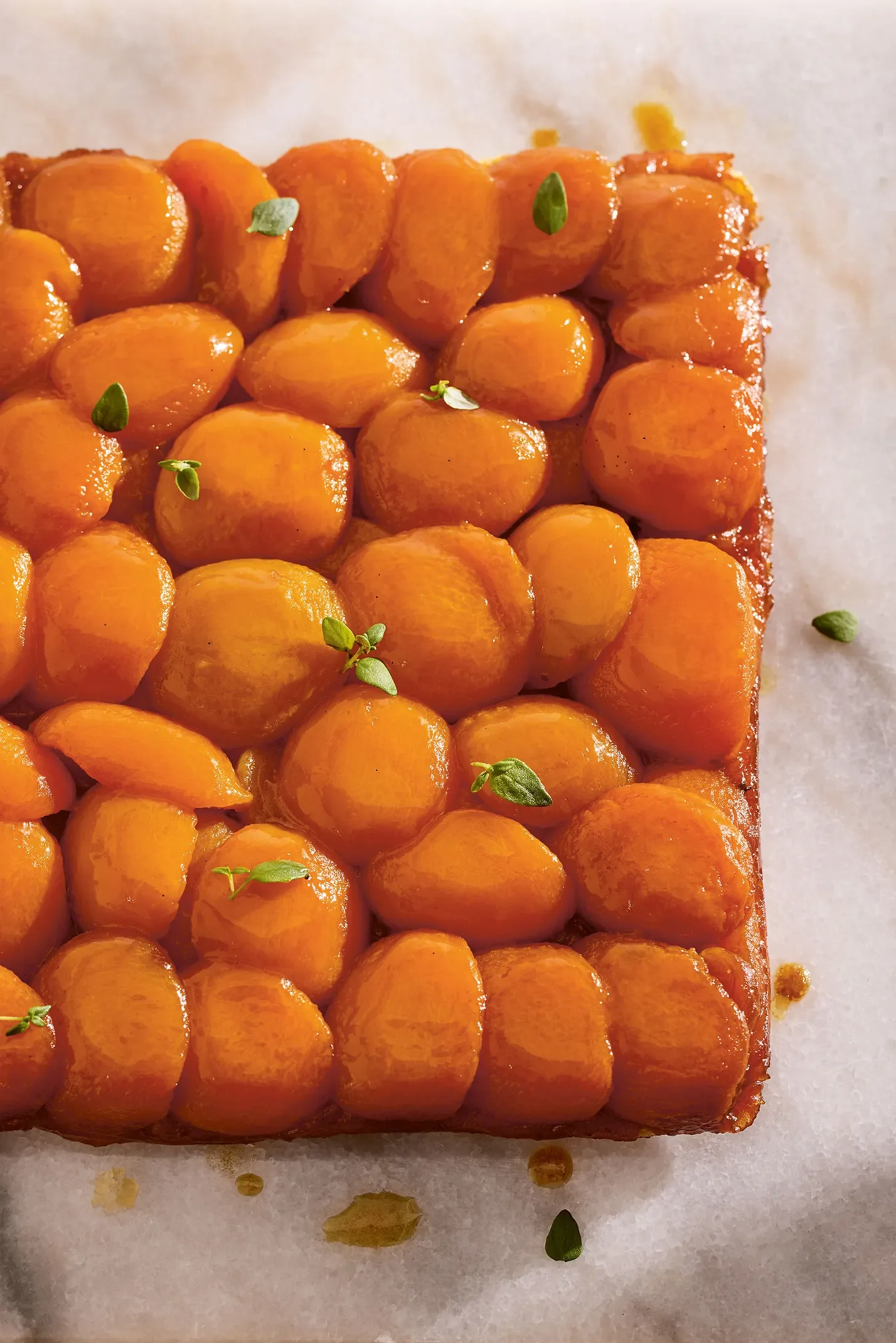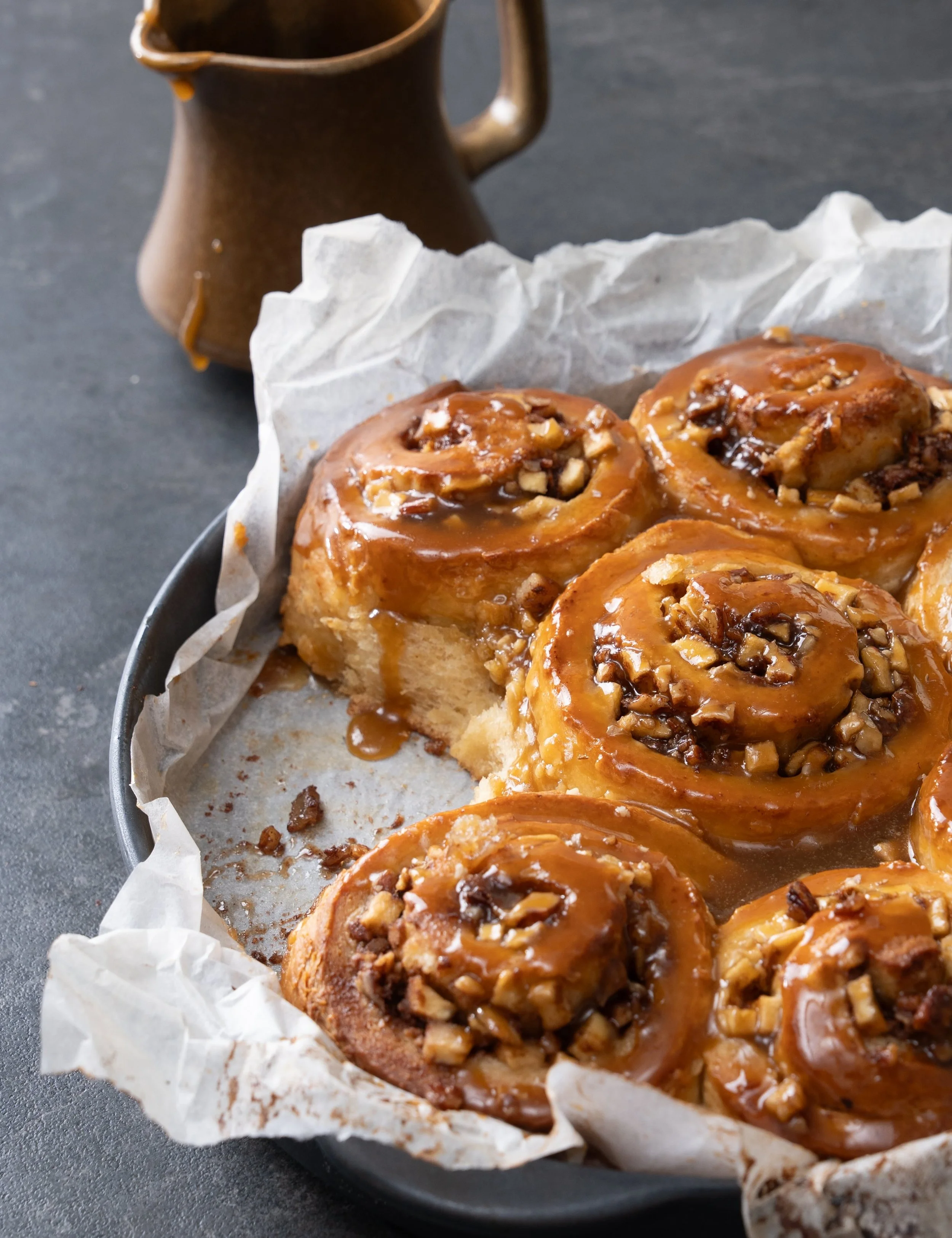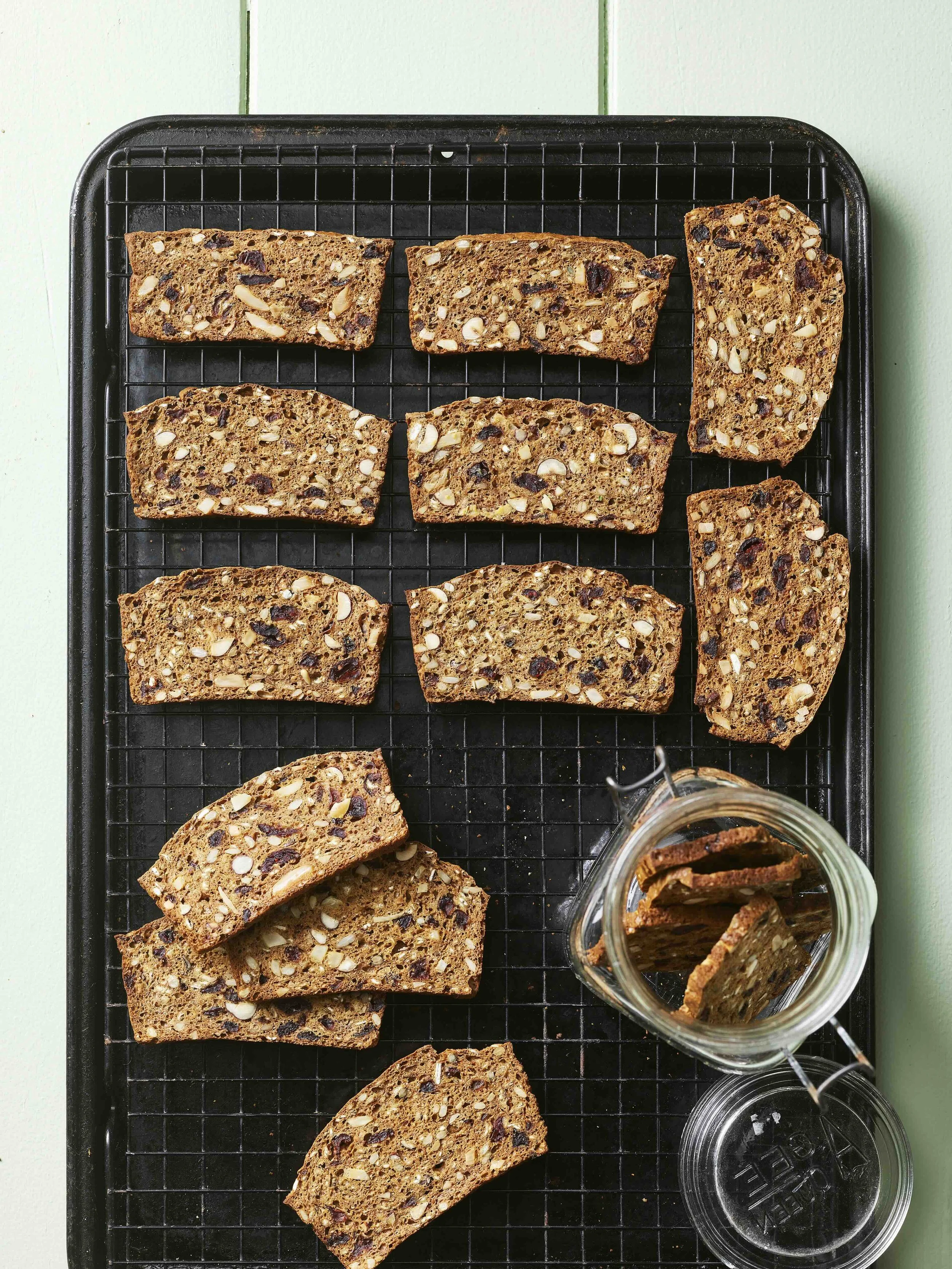Tuscan raisin and rosemary Easter buns
Before travel was easy and relatively affordable, a great cook book featuring recipes from some far flung cuisine was a real window into the world. Yes; we’re that old. We actually pre-date the internet. Short of jumping on a plane, the best way to expand our culinary horizons was to devour cookbooks. The descriptions of places and the flavors of whatever we made were our gateway drug.
We still have our copy but it’s a bit gnarly; it’s stained, dough-encrusted and filled with ancient crumbs. The book is serious… we’re talking line-drawings-and-barely-any-photography serious. No glossy food shots, no evocative location pics; no artful food styling. The tone is fairly serious too; there’s not much first person going on, so the author never really directs attention to herself. Extensive recipe methods, including wordy descriptions for dough-making alternatives (by hand, mixer and processor), plus the forensically correct gram conversions from American cup measures, meant we never had any baking stuff-ups.
Field’s supporting text – and there’s a fair bit of it – references traditions, techniques and regional corners of Italy that, back in the day, we could only ever dream about. We’d never heard of goodies like gubbana, maritozzi, schiacciata, or torta de riso. We didn’t know that in the north of Italy they made a type of strudel, that Tuscan bread is saltless, or that panettone was so damned tricky to make. Reading (and making) recipes for rich sweet breads infused with masala, almonds and citrus, trying our hand at Roman pizza, or delving into regional breads from places like Puglia, Terni and Sicily, all translated to delicious, carb-fuelled adventures.
One of our go-to recipes from The Italian Baker is still the pan di ramerino. These Tuscan rosemary and raisin buns were once made for the Holy Thursday of Easter week; however, Field explains how they’re now available year-round. It used to feel incredibly daring making these for Easter as they’re quite a deviation from the expected Hot Cross Buns. While our national palate and collective culinary minds have expanded significantly, we still favour baking and eating these not-overly-sweet rosemary-infused buns at Easter – maybe you will too once you taste them. This is our adaptation of the Field original, tweaked here and there but still faithful to her original.
Makes 12
55g (¼ cup) caster sugar
250ml (1 cup) lukewarm water
3 tsp instant dried yeast
2 large eggs, lightly beaten
1 egg yolk, lightly beaten
80ml (⅓ cup) extra virgin olive oil, plus extra for greasing
640g (4¼ cups) plain flour
1½ teaspoons salt
5 large sprigs rosemary, plus extra for scattering
170g (1 cup) raisins, coarsely chopped if large
Glaze
115g (1/3 cup) apricot jam or orange marmalade
2 tsp lemon juice
Combine a pinch of the sugar and the water in a large bowl. Sprinkle over the yeast, then stand in a draught-free place for 6-7 minutes or until foamy. Add the remaining sugar, eggs, yolk, half the olive oil, the flour and salt then, using a wooden spoon, mix until a coarse dough forms. Turn the dough out onto a lightly floured surface and knead for 5-6 minutes or until the dough is smooth and elastic; add a little more flour if the dough is sticky but try not to add too much or your buns will be a bit tough and dry. (You can also knead the dough in a machine fitted with a dough hook).
Form the dough into a ball and place it in a large, lightly oil bowl, turning to coat. Cover the bowl with plastic wrap, then stand in a draught-free place for 1 hour or until doubled in size. Deflate the dough using your fist.
Meanwhile, remove all the leaves from a sprig of the rosemary, finely chop them, then set them aside. Break the other sprigs in half. Heat the remaining olive oil and the rosemary sprigs together in a small frying pan over medium-low heat, then cook, turning the rosemary occasionally, for 3-4 minutes or until the oil is fragrant. Add the raisins and cook, stirring, for another 2-3 minutes so they infuse a bit in the oil. Remove the pan from the heat and cool. Remove the rosemary sprigs and discard. Preheat the oven to 200C. and line a baking tray with baking paper.
Turn the dough out onto a lightly floured surface, then roll it out into a rectangle about 42 x 26cm. Sprinkle over the chopped rosemary, then scatter over the raisin mixture. Roll the dough up, Swiss roll fashion, to form a log, then cut the log into 12 even-sized pieces. Roll each piece into a ball, place on the tray, leaving at least 5cm between each, then cover the tray loosely with a clean, damp tea towel. Stand for 30 minutes or until risen and puffy. Use kitchen scissors to make a couple of cuts in the top of each. Bake for 20 minutes or until deep golden. Turn out onto a wire rack to cool.
For the glaze, combine the jam and lemon juice in a small saucepan. Heat, stirring, over medium heat for 3 minutes or until the jam has melted. Push the mixture through a sieve, then use it to brush the tops of the warm buns. Scatter over some extra chopped rosemary, then cool and serve with butter. The buns are best served on the day they’re made but will keep, unglazed and frozen in an airtight bag or container, for up to 8 weeks.












